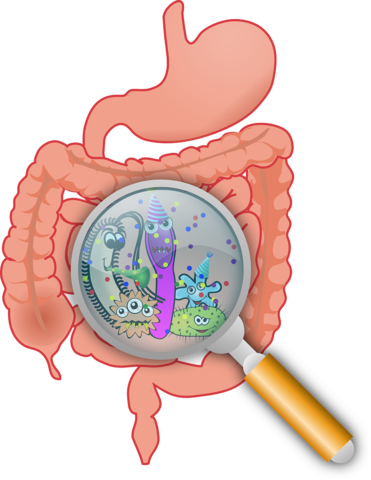What’s Up With Parkinson’s Patients’ Guts?
Parkinson’s disease is awful.
If you’ve ever met someone with the disease, you can see just how terrible it is. The inability to control muscle movement and the slow fade into total lack of control over motor skills is miserable both to live with…and to watch.
The sad truth of the matter is when someone with Parkinson’s is in that kind of shape, their condition has been years in the making.
The research community is working overtime to discover what causes Parkinson’s. In addition to researching causation, they’re also trying to discover how to prevent it.
Recent studies of the disease indicate that gut health, particularly the presence of certain kinds of bacteria and the absence of others, might have something to do with the development of Parkinson’s disease.
A team of researchers led by Prof. Paul Wilmes, head of the Eco-Systems Biology Group at the Luxembourg Centre for Systems Biomedicine (LCSB) of the University of Luxembourg was researching the gut health of people with Parkinson’s and noticed their gut flora (bacteria) differed from those who didn’t have the disease.
This was even true for people who were at the very earliest stage of developing Parkinson’s disease.
Publishing their findings in the scientific journal Movement Disorders, Wilmes and his team further explored the origination theory behind the development of Parkinson’s.
Right now, the most popular hypothesis is Parkinson’s happens only after the body is invaded by an outside pathogen.
As Medical News Today writes:
“Experts have long been discussing the notion that Parkinson’s disease originates far outside the brain. According to the “dual hit” hypothesis, a hitherto unknown pathogen intrudes into the body through two ports of entry: the nose or the gastrointestinal tract. Once there, it sets a pathological process in motion, above all the misfolding of the protein alpha-synuclein. This is a protein whose exact function remains unknown.
Among other things, it is presumed to be involved in the excretion of messengers such as dopamine. The misfolding of this protein could propagate through the nerve pathways, where – decades later – it produces the typical clumping in the dopaminergic cells, known as Lewy bodies, that are characteristic of Parkinson’s. Ultimately, nerve cells start to die off and the typical symptoms of Parkinson’s disease appear.”
Wilmes and his team figured this event might negatively affect the bacteria in the gut, so their mission was to check gut bacteria and see how much they differ from people who aren’t sick with the disease.
To figure this out, they took 76 people with Parkinson’s and 78 who did not have the disease and extracted samples from their nose and their guts.
In addition to analyzing those samples, the researchers also took samples from 21 people who had been diagnosed with a condition called IRBD, (Idiopathic Rapid-Eye-Movement Sleep Behaviour Disorder) and analyzed them.
People with IRBD tend to develop Parkinson’s later on in life.
The analysis of these 3 different groups compelled the researchers to conclude Parkinson’s patients had significantly altered gut bacteria profiles.
They even noted that some of the bacteria found in the guts of Parkinson’s patients (and IRBD patients) were responsible for non-motor Parkinson’s symptoms; like depression for instance.
Wilmes and his colleagues hope these discoveries won’t just help explain what causes Parkinson’s, they believe they’ll also help in creating a treatment.
“We hope that, by comparing the groups, we will learn to better understand the role of the microbiome in the process of the disease and to find out what changes occur and when,” Paul Wilmes explains. “This might deliver new starting points for early treatment of the disease. It would also be essential knowledge for one day being able to use the absence or presence of certain bacteria as a biomarker for early detection of the disease.”
Research like this continues to support the claim that a healthy gut is vital for a healthy life.
Talk soon,
Dr. Wiggy
www.HealthAsItOughtToBe.com


